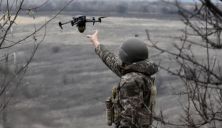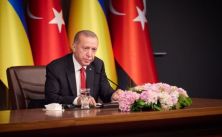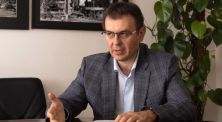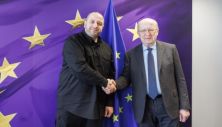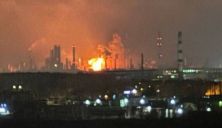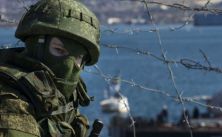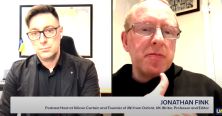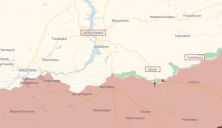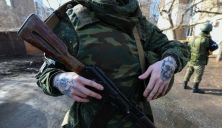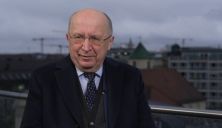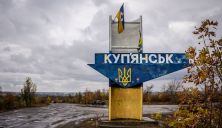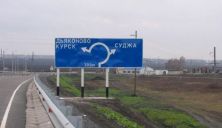In Germany, as in other parliamentary republics, the head of government is the highest official. But it would be a huge mistake to underestimate the role of the federal president, whom the Germans consider the head of state, writes European Pravda.
The German president is playing a special role now that Frank-Walter Steinmeier is in office. Whatever the attitude towards him in Ukraine, in Germany this veteran politician has respect. Especially considering that Steinmeier belongs to the same political force as Chancellor Olaf Scholz.
The Social Democratic Party of Germany was often (and not without reason) perceived as friendly to Russia.
On October 27, German Federal President Frank-Walter Steinmeier addressed the German nation with a landmark, milestone, historic speech. The President directly announced the beginning of a new era in relations with Russia and the world. And this coincides with Scholz’s revolutionary statements that it is time to perceive Ukraine “as a future member of the EU.”
FREEDOM presents a translation of this speech with minor abridgements.
Address to the German Nation by Federal President Frank-Walter Steinmeier
Everyone in Germany who woke up on February 24 and saw footage of rocket attacks on Kyiv, columns of tanks on Ukrainian streets, the huge scale of the Russian invasion – everyone who woke up and saw it realized that the world was different that morning.
But no one felt the horror that morning as deeply as the people of Ukraine.
On Tuesday (October 25 – ed.) I found myself in the same bomb shelter with some of the Ukrainians in Koryukovka, a small town near the Belarusian border, during an air raid. There they told me their stories, shared how February 24 changed everything, how the horror of the war broke into their normal life. They talked about the terrible noise of the bombings, the smoke, the fire, about their sudden, unprotected fear – and speaking to me, these men and women trembled.
An elderly woman told how, together with her grandson, she watched an endless column of Russian tanks, trucks and military equipment passing by. The grandson looked at her and asked, “Grandma, are we going to die?” and she hesitated to answer his question. Even now, she wept as she remembered it.
“Each of you will remember this February 24th. As I rember.”
Howling sirens and dark smoke over Kyiv, scary photos amazed me. But at the same time, they marked the final, bitter failure of many years of political efforts, including my efforts, to prevent this very terrible moment.
“February 24 was the day of the change of eras.”
Here in Germany, this day took us to another time, to uncertainty. It seemed to us that wars with violence and deprivation of people of the places where they lived were in the past. And now they could spread across Europe like wildfire.
We have been transported into a period of severe economic turmoil, an energy crisis and skyrocketing prices. A time when our successful economic model based on global connectivity came under pressure. A time when social cohesion, confidence in democracy, even self-confidence were blown up.
Politics cannot work miracles. No one, including myself, the Federal President, can allay all the concerns of the Germans at this deeply uncertain time.
“Moreover, many of these worries are justified: we are indeed experiencing the deepest crisis in our united Germany.”
But I firmly believe that if we understand what is happening now, we will no longer be scared and defenseless, meeting this new era.
For many years until February 24, 2022, Germany was moving forward, and a tailwind helped us to go.
These were the years when the unification of Germany took place, the years of the peaceful withdrawal of Russian troops from our territory, the end of the confrontation of military blocs and the ever greater unification of Europe. And we Germans, in the heart of a united Europe, benefited greatly from the fact that these were years of peace.
It has shaped our view of the world. We thought we were surrounded by friends, and war in Europe became unthinkable.
It seemed that freedom and democracy were gaining ground everywhere, that trade and prosperity were possible everywhere.
Despite all the crises of that time and the implementation of not everything that we hoped for, these were good years! And Germany has gone from a country with a dark history to a respected member of the community of nations; to the country preferred by partner states; a country with increasing opportunities for influence and growing responsibility in the world.
Germany, such a small country on a global scale, practically devoid of natural resources, has become a strong, modern, globally connected economy. We have achieved this through good education and training, willingness to reform and trade links around the world.
Having behind those years when a fair wind blew, I say: these were good years. But even then, none of our achievements fell to us from the sky. We have worked to get it for the sake of peace and prosperity. We relied on international cooperation and played by the rules.
And then came February 24th.
“On February 24, Putin didn’t just break the rules and end the game. He just threw the chessboard on the floor on which the game was played!”
Russia’s brutal war of aggression in Ukraine has reduced the European security order to ashes. In his imperial obsession, the Russian president violated international law, seized land, questioned borders.
The Russian attack was an attack on all the lessons the world had learned from the two world wars. Now these lessons of the world are disappearing. Points of contact, connections, dialogue within the society of states are increasingly being replaced by the struggle for ideology and dominance.
A significant factor is China’s desire for economic and political power. This struggle will define international relations for the foreseeable future.
The world is on the path to confrontation – although it depends on cooperation more than ever. Climate change, species extinction, pandemics, famine and migration cannot be solved without the willingness and desire of international cooperation.
“For us in Germany, this means that difficult years are ahead. Brutal years.”
The dividends we collected from the era of peace have dried up.
An era is dawning for Germany in which we must bravely face headwinds.
To win at this time, we can draw on the strength and power gained during the good years. Experience gained during other severe crises will help us. In the end, we have a strong economy, stronger than many others, good science, strong business and a capable state.
We have a broad support of centrist forces, which is the basis of our society.
But the strengths that have helped us so far are not enough for us. We need more. We must learn to resolve conflicts, both internal and external. We need the will to assert ourselves, as well as the strength to accept sacrifices.
What we need is not the mindset of war, but resilience and the spirit of resistance.
This includes, first of all, the strong and well-equipped armed forces, the Bundeswehr. This is expected by the people of our country, as well as our neighbors and partners.
We are a strong country in the center of Europe. We have an obligation to contribute to collective defense, and today the need for this is much greater than before, when we were defended by others, such as the United States. For a long time we could rely on others, but now others must be able to rely on us.
I assure our partners that Germany is aware of its responsibility in NATO and the EU. This is confirmed by the security decisions that the Federal Government made after the turning point on February 24th. It also confirms a broad public consensus in support of these decisions.
And – what is especially important to me – it also confirms the growing respect for our Bundeswehr in our society – this is a growing understanding of the need for it.
Finally. It’s time.
“German society needs a strong Bundeswehr – but the Bundeswehr also needs a society that supports it!”
Resilience and the ability to resolve conflicts still require more.
As the expectations from us grow, so does the criticism against us. We must respond to it maturely and not use every external criticism as a weapon for an internal political struggle.
We will have to get used to the fact that a country like Germany will be criticized.
Look at the USA – they have enough practice. The US is the world’s leading power, but it is criticized both for what it does and for what it doesn’t. They cannot point fingers at others or appeal to someone in charge. Washington needs to know what it is doing and why.
“But what about Germany? No, Germany is not a world leader. But we are one of the largest states in Europe. Therefore, we are expected to lead in the interests of Europe.”
And what matters here is not the applause of the audience. It is important to strengthen Europe. The more uncertain the world around us becomes, the more confidence we need on our common path!
Preparing for these new times means asking yourself tough questions. The world has changed since the change of eras – and we also need to reject old ways of thinking and old hopes.
This is especially true of our attitude towards Russia.
I know that many people in our country have a connection with Russia and its people, they love Russian music and literature.
In eastern Germany, there are also very different memories of 40 years of shared history that still resonate. In addition, all of us, both in the east and in the west of Germany, are grateful for our reunification and do not forget that it happened peacefully thanks to Mikhail Gorbachev. For the Soviet troops returned home without any shot, which gave many hope for a peaceful future.
I shared this hope and it has motivated me for many years.
“But when we look at today’s Russia, old dreams have no place. Now our countries are opposed to each other.“
… What Russia is doing is an attack on everything that we Germans also stand for.
The one who shrugs and asks: “What does this war have to do with us Germans?” — has neither a sense of responsibility nor a sense of history.
“Therefore, we support Ukraine and will do so for as long as it takes.“
We are talking about military support, financial and political support, as well as much-needed support for a quick recovery from Russia’s dastardly attacks on power, heating, hot water, infrastructure that becomes vital as winter approaches.
And I’m not just talking about supporting politicians.
There are so many people in Germany who are doing their best to help, countless civil society initiatives, municipal partnerships and networks that help on the ground in Ukraine. For this I would like to thank everyone in our country today.
To all those who provide this vital help and ensure its continuation – thank you!
This war also affects us Germans – we have no way to avoid economic pressure on Russia.
I say this to those who ask me why we have to bear the burden of war in another country. “Aren’t sanctions hurting us more than anyone else? Couldn’t they just cancel them?” These are questions I hear a lot these days, and I don’t want to dismiss them because the fears behind them are real.
We need to answer these questions.
We live in conflict. To do this, we need conflict tools.
Yes, sanctions have their price, including for us. But what would be the alternative? Stand aside and watch this criminal aggression? Just keep going like nothing happened?
“No, it is in our interests to confront Russian lawlessness together with our partners.”
It is in our interest to free ourselves from dependence on a regime that sends tanks against a neighboring country and uses energy as a weapon.
It is in our interest to protect ourselves and reduce our vulnerability. No one said it more clearly and succinctly than the Prime Minister of Estonia: “Gas may be expensive, but freedom is priceless.”
Yes, we live in conflict. Yes, this war affects us too.
But it is equally important for me that our country is not in a state of war.
And we don’t want that to change. Any spread of this war, let alone nuclear escalation, must be prevented.
I know that many people in our country yearn for peace. Some believe that we are making little effort to do this, that we lack the readiness to negotiate. But the imaginary “peace” that we will get as a result of such actions, the “peace” that cements the seizure of foreign land by Putin, is not peace.
For many people in Ukraine, it will mean the reign of terror, it will leave them as victims of the violence of the Russian occupiers.
“Worse yet, such a fictitious “peace” would only increase Putin’s appetites. Moldova and Georgia, as well as our NATO partners in the Baltics, live in fear for good reason.”
Ukrainians – men, women and children who daily flee to their basements from Russian rocket attacks – they also yearn for peace, even more desperately than we do! But they are right when they say that it should be a just world. A world that has preserved the independence and freedom of Ukraine.
“An unjust world is not peace – it carries within itself the seeds of new wars. An unjust world will aggravate all those in the world whose lust for power knows no laws and rules.”
We must act to overcome contradictions: to wish for peace, but to supply weapons to the war zone; support one of the parties to the war, while not being at war; imposing sanctions on others while suffering them ourselves is indeed a contradiction, and I hear every day how many Germans are filled with doubt or even despair over them.
For us Germans, this is a test of strength, of resistance to a headwind.
The new time throws us a challenge that we have not faced for a long time. This is a test of strength from which we cannot escape.
…
We want to be able to say in 2 years that we have gone through the worst of the recession.
We want to be able to say in 5 years that Ukraine has not only defended its sovereignty, but there is no threat that a war in Europe will start again.
We want that in 10 years we can say that we have saved our society, got through the crisis and supported its weakest members, and the majority have kept faith in democracy.
We want to be able to say in 15 years that, despite the war and crisis we have experienced, future generations can enjoy a good life.
We may not be able to move towards success at the same pace as we have been in the last 30 years. But the main things are gaining weight again – and they deserve all our efforts.
I speak very consciously of “our” efforts: the new times require the efforts of everyone.
It was possible to do without much difficulty when a fair wind blew. Then it was possible to say “others are engaged in politics”. But now this is no longer the case. Germany needs your will to change, your contribution to get us where we want to be!
“And in the coming years, we will need to make certain sacrifices.”
Most of us have already felt the effects. And we all have to do our part. This crisis requires us to learn again modesty, restraint.
This may sound like a mockery to those who are already barely making ends meet today. I know that although we live in a rich country, many people can no longer make sacrifices – because until now they have made sacrifices and do it every day. This crisis affects people who, even before the outbreak of the war, struggled daily to have something to live on, how to pay rent, to give their children a good life.
That is why every such discussion must begin with a reassurance: during this crisis, the authorities will not leave you to your fate and use their resources to help those who cannot cope on their own. We need assistance packages and a special anti-crisis fund, measures to contain gas prices, housing benefits, support for small and large businesses. This support must quickly reach those who need it. No country in Europe can do as much to help its citizens as we can.
…
But we also need to be honest about the fact that surviving this winter is not the end.
As worried as we are now about inflation, energy prices and war, when this winter passes and we emerge from the economic crisis, we will not be able to return to what it was … Suffice it to recall that climate change did not take a break during the war in Ukraine .
And if we want to drastically reduce emissions and move away from fossil fuels, we will have to give up some of our favorite habits, both small and large…
Still, our individual efforts will not be enough.
Our country and our successful economic model are undergoing a historic transformation. We are leaving behind the industrial age, which was based on fossil fuels and provided the foundation for Germany’s rise as an export country.
“We are entering an era without coal, oil and gas, an era in which Germany must find and find its role, its place.”
Despite numerous challenges, this era opens up great opportunities for our country…
And since global climate change can only be prevented together, we must also make sure that the institutions and cooperation that bridge the growing geopolitical divides do not allow for a new confrontation between the blocs. Dividing the world in half and pitting “us against them” is not in our interest… Let’s not forget all the things that made German foreign policy strong: strong attachment to Europe, the desire for international cooperation, the establishment of common rules, the dialogue between parties adhering to different views, and the desire to establish partnerships with those who are different from us.
It’s not a matter of style. It’s a matter of survival. For without fighting climate change, everything loses its meaning.
…We are making sacrifices to get through this crisis. We are transforming ourselves to save our planet. And there is a third thing that this time requires of us. We need active, or rather persistent citizens.
The attacks on our free society are intensifying.
Putin is trying to divide Europe and he is injecting poison into the heart of society.
And we are vulnerable because we are open and we want to stay open.
The rail network, the power supply, the internet, the programs on our mobile phones have all been targets of attack. We must better protect ourselves.
Our democracy is also part of our critical infrastructure. We are the only ones who can protect him.
Resilient citizens stand up for what they believe in and they voice their concerns – but they must also be able to cut off those who attack our democracy.
Resilient citizens distinguish between necessary criticism of political decisions and all-out attacks on our political system.
Resilient citizens can handle uncertainty and are not deceived by those who promise simple solutions. But they should rightly expect politicians in these difficult times to focus on the essentials and put aside ritual sparring.
Resilient citizens demand the ability to live the way they see fit — but they also remember how dependent we all are on each other.
Resilient citizens demand respect and intelligence for themselves. This is the only effective antidote to populism, to the danger of being divided.
…Today, for the first time in history, united Germany is at a fork in the road.
Will we venture into a new day and a new age? Are we ready to do what we are called to do?
I firmly believe that by meeting this challenge, we will be able to nurture a new strength and a new unity. It will not be easy, it will be hard work… If we show solidarity, if we show courage and ambition, then I am sure that we will cope with the task that has been set before us.
We will keep our freedom and our democracy. We will make Germany a new type of industrial country, a technological and climate-responsible leader in the heart of Europe.
Let’s believe in each other – and let’s believe in ourselves. Let’s not stop at the headwind that brings this new day and age.
This is a task for us. So, let’s take it.
